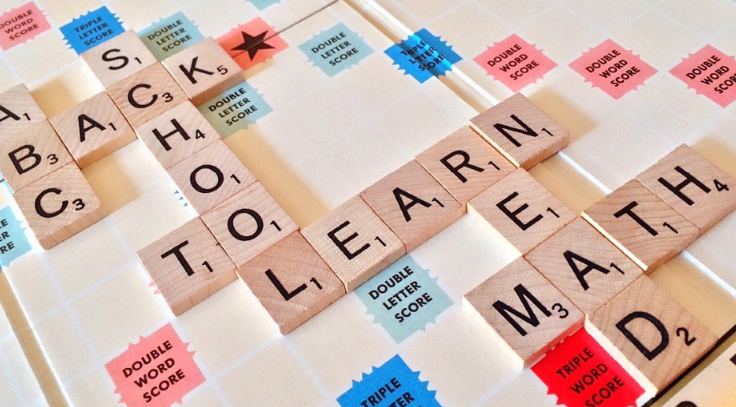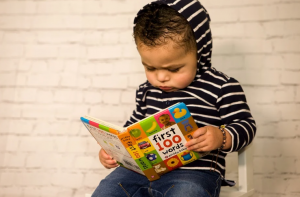
Improving students’ language skills is a constant struggle for teachers or parents. Instead, teachers look for creative strategies to help children improve their vocabulary and thus increase their reading level. Usually, teachers will let them watch movies with subtitles so the children can learn new vocabulary and what contexts they can use them. However, nowadays, many parents and teachers try to use board games to improve their vocabulary.
Vocabulary games are the ideal way to teach students to improve their language skills because they subtly use their skills without getting bored. A board game will be set up for the competition. The children focus on the idea of winning and mastering the challenges and do not even realize that they are improving their language skills at that moment. The use of word games is an effective way to improve vocabulary, as it helps students to apply these skills without knowing they are learning something. It allows children to play with words without pressure, familiarize themselves with phrases, and enjoy the language. Here are the four board games for improving your kids’ vocabularies.

Apples for Apples
Apples for Apples is a board game that involves two sets of cards with pictures of apples on the front. It can also be done with younger students; there is a “junior” version to make sure each sentence is age-appropriate.
Here’s how it works: One person (one more person for each shift) takes a green card from the outside, for example, “stinker”. The other players choose from a selection of red cards in their hand and the names, which can best be described by the adjective. They can be names of celebrities, things, areas. a wide range of names. The most fun part of this game is to see what has been chosen to represent each of the loaves. The person with the green card then chooses the card they prefer.
Balderdash
 It is a super creative game based on vocabulary designed for 2-8 players and could be done with only a small sentence for language game instruction. This game is effective in building language because it creates words that create a certain charm, a mystery, by selecting the vaguest phrases that can be reached. Students participate in language acquisition by creating their definitions. They also acquire the ability to listen for the most important meaning, an essential ability to analyze and find new words.
It is a super creative game based on vocabulary designed for 2-8 players and could be done with only a small sentence for language game instruction. This game is effective in building language because it creates words that create a certain charm, a mystery, by selecting the vaguest phrases that can be reached. Students participate in language acquisition by creating their definitions. They also acquire the ability to listen for the most important meaning, an essential ability to analyze and find new words.
Here is how Balderdash works: one player (known as the crook) has received a card with absurd and eccentric words with their definitions on his back. The other players then put definitions on the word that seem legitimate and are meant to deceive them. The script reads this word, along with the spelling.
Each of the players now composes their imaginative definition in their cards. The dasher will write the correct definition. Then each player gets the point if their definition is chosen. On the other hand, the dasher will get the point if he can fool all of the other players.
Upwords
 Like Scrabble, Upwords is structured like a crossword puzzle, with sentences moving vertically and horizontally on the blackboard. Unlike Scrabble, but this game is three-dimensional, which means that you can stack the letters on the board and move the existing word. This game is for 8 to 12-year-old kids. It’s ideal for talking and aimed at students interested in the phrases they know, the limits of the pieces on the board, and their hands.…
Like Scrabble, Upwords is structured like a crossword puzzle, with sentences moving vertically and horizontally on the blackboard. Unlike Scrabble, but this game is three-dimensional, which means that you can stack the letters on the board and move the existing word. This game is for 8 to 12-year-old kids. It’s ideal for talking and aimed at students interested in the phrases they know, the limits of the pieces on the board, and their hands.…


 When looking at your career, where do you see yourself after a few years? Whatever the case may be, analytical skills will help you in achieving success. Taking up new courses and even enrolling for a new program can help us improve our skills and improve our curriculum vitae. Taking up a master’s degree or even a doctorate can help you obtain further information and knowledge that allows you to work with many data sets and problem sets for you to understand data on your respective field truly.
When looking at your career, where do you see yourself after a few years? Whatever the case may be, analytical skills will help you in achieving success. Taking up new courses and even enrolling for a new program can help us improve our skills and improve our curriculum vitae. Taking up a master’s degree or even a doctorate can help you obtain further information and knowledge that allows you to work with many data sets and problem sets for you to understand data on your respective field truly.



